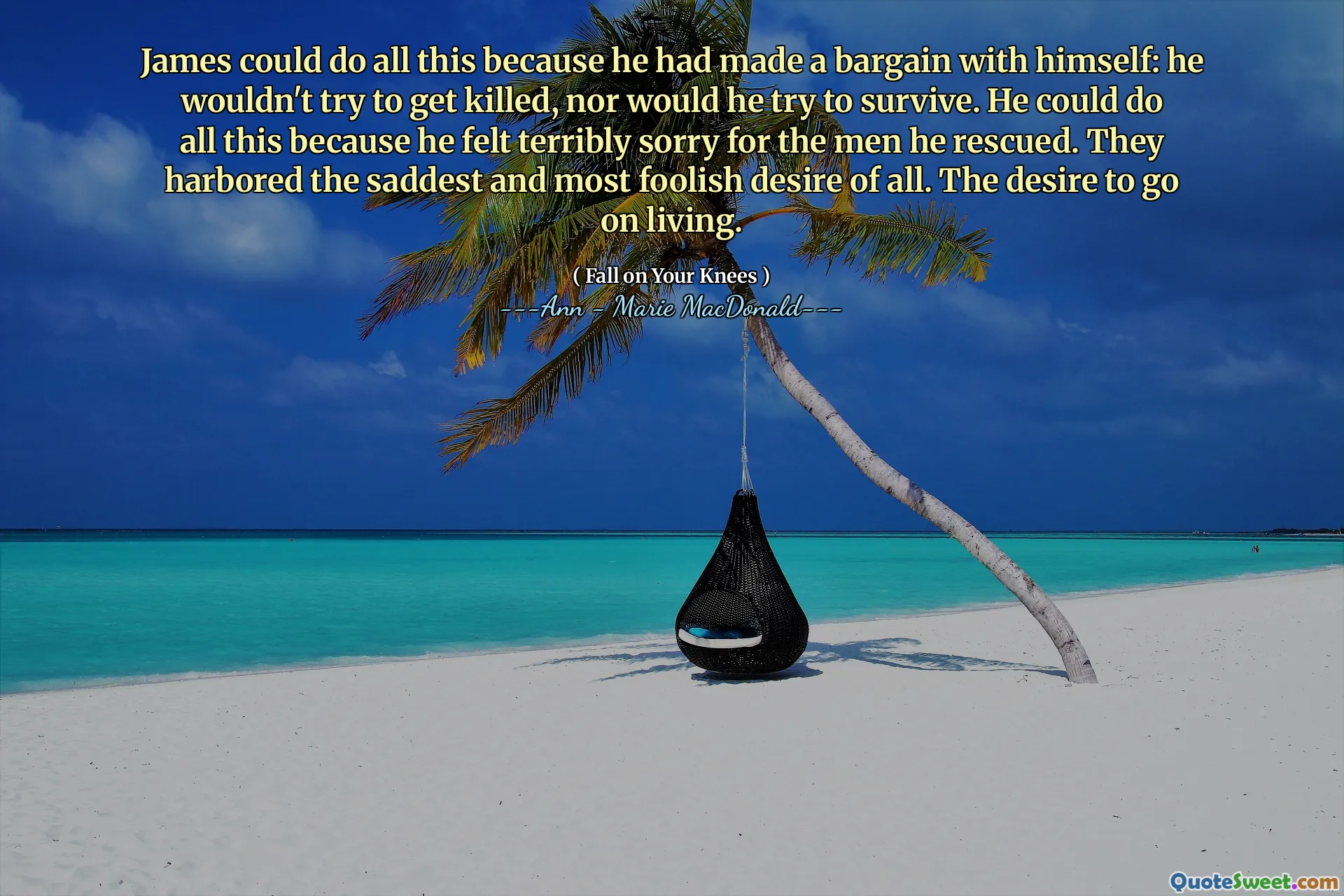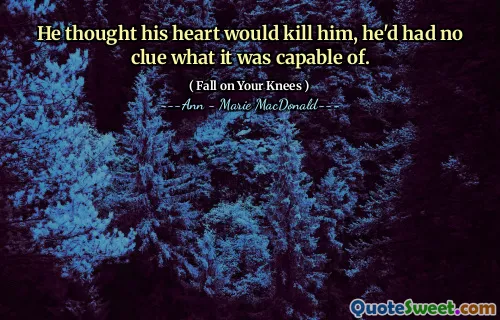
James could do all this because he had made a bargain with himself: he wouldn't try to get killed, nor would he try to survive. He could do all this because he felt terribly sorry for the men he rescued. They harbored the saddest and most foolish desire of all. The desire to go on living.
This quote explores the complex interplay between self-awareness, sacrifice, and the instinctual drive to survive. James’s internal bargain highlights a deliberate choice—accepting the possibility of death without actively risking it or desperately clinging to life. His compassion for the men he rescues reveals a depth of empathy that transcends mere duty; it underscores a recognition of human vulnerability and the often foolish yet profound desire to continue living, despite hardships. The contrast between James’s detachment from the urge to survive and the men’s hopeless longing illustrates the varied nuances of human resilience and despair.
At its core, this narrative underlines that survival is not always a straightforward, instinctual act but can be influenced by one’s emotional connections and moral decisions. James’s self-made pact suggests a conscious relinquishing of fear, perhaps as a means to fulfill a sense of purpose, or as an act of compassion. His guilt or sorrow for others’ wish to persist emphasizes that the human pursuit of life is often intertwined with the love and empathy we hold for others. It raises profound questions about what it means to actively choose to live or to accept death's inevitability.
This quote encourages reflection on how personal moral boundaries and emotional bonds shape our survival strategies. It reminds us that beneath the surface of urgent life-and-death situations lies a profound critique of the human condition—how we grapple with fear, hope, and the inherent desire just to exist. Such insights invite readers to consider the moral and emotional intricacies that define our relentless pursuit of life amid circumstances that challenge our fundamental instincts.









